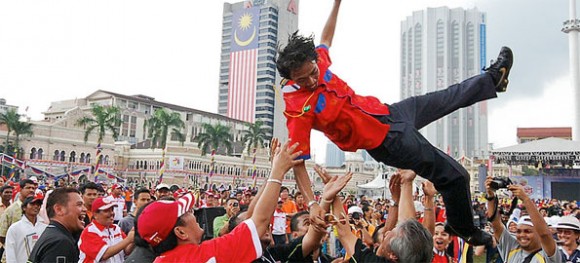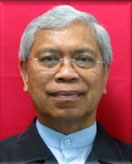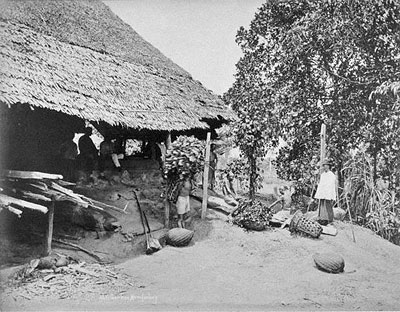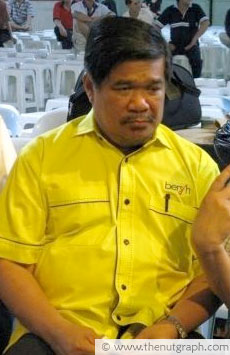UNTIL recently, Malaysia had been celebrating independence with parades and banners proclaiming the number of years that have passed since 1957. This inaccuracy has been brought to light over the past few years as more people begin to understand the significance of 16 Sept 1963, when Malaysia was formed.

People and politicians alike have now awoken to the fact that Sabah and Sarawak have often been conveniently omitted from the national narrative. There are now ongoing calls for the school history syllabus on Malaysia to be revised, even as politicians continue to bait each other over aspects of historical interpretation. This Malaysia Day, The Nut Graph asks political scientist Wong Chin Huat just what we need to relearn about our nation’s founding.
TNG: The Sarawak Teachers’ Union recently highlighted that Sabah and Sarawak never joined the Federation of Malaya, as some have claimed, but, together with Singapore and the Federation, formed Malaysia on 16 Sep 1963. How does using either description (whether joined or formed) alter how we look at our country today?
The Sarawak Teachers’ Union is right. In fact, most East Malaysians have been right. It’s many West Malaysians who are somehow caught in pre-1963 history. When people talk about the “three major races” (which should be “ethnic groups”), they are still living in the long-defunct Federation of Malaya/Tanah Melayu. When Malaysia was formed on 16 Sept 1963, it was actually four independent nations coming together, rather than one independent nation (Malaya) and three colonies (Sabah, Sarawak and Singapore).
Sarawak was an independent kingdom from 1842 to 1888, then a British protectorate from 1988 to 1946. It regained independence on 22 July 1963 and remained so for 56 days before the formation of Malaysia. Meanwhile, Sabah and Singapore became independent on 31 Aug 1963 and remained so for 16 days. So 16 Sep 1963 was really the day of union for four independent nations.

I suppose we should thank Professor Zainal Kling for reminding us after five decades that technically the nine Malay states were never colonies, but mere protectorates. These states were therefore never decolonised, but merely “deprotected”, if there is such a word! Therefore, technically, only Penang, Malacca, Sarawak and Sabah can celebrate achieving independence from colonisation. I suppose in the 1Malaysia spirit, the rest of us can “kongsi raya” for one more public holiday.
But on a serious note, the only day that qualifies as National Day now is really 16 Sept 1963, since we do not share “independence” as a common historical experience. Ironically, Malaysia Day was celebrated only as the Sabah governor’s birthday till 2009!
Higher Education Minister Datuk Seri Mohd Khaled Nordin recently said that the schools’ history syllabus needs to be reviewed. In your view, which parts of the formation of Malaysia needs reviewing and why?
The official history of Malaysia is written to portray Umno as the natural ruling party for this country because it founded the nation with others playing a supportive role. This in turn requires the political myth that Malays have always been politically united, culturally and religiously homogenous and are entitled to special rights as the “definitive people” of this country. These “homogenous” people then choose Umno as their sole political vehicle.
This picture is incomplete and incorrect. Malaysia’s history therefore needs to be rewritten in at least a few aspects:
• Indianised civilizations

We need to recognise the Indianised civilisations and polities in the current territories of Malaysia and its neighbouring regions such as Langkasuka, Tan Tan, Che Tu (Tanah Merah), Lembah Bujang, Ganga Negara, Srivijaya and the pre-Islamic Malacca kingdom under Parameswara. This should not be seen as contradicting Islamisation. We should learn from the Javanese, who only opted to be Islamised and not Arabised, so as not to deny their cultural roots. Needless to say, the denial of such rich heritage is certainly unfair to all Malaysians, not just those with Indian roots.
• Plural society
The emergence of a plural society is seen as a historical “mistake” by British colonialists. The story goes that they brought in “outsiders”, then practised the “divide and rule” policy to leave them unassimilated. What was conveniently forgotten was that the influx of ethnic Chinese and Indians filled a need in the labour market and fuelled economic development. This “laissez faire” cultural policy was perhaps the most rational policy to be adopted by any ruler, whether foreign or local, interested in wealth creation.

The British only came to power in Perak and Selangor in 1874 and 1875. So, who were the ones who brought in the Chinese to mine and then fight alongside Malay feudal chiefs in the Larut War and Klang War? And it was Temenggung Daeng Ibrahim and his son Sultan Abu Bakar, the father of modern Johor, who introduced the Kangchu system in the 19th century. This system involved ethnic Chinese applying to the Johor sultan for land grants to develop pepper and gambier plantations at the river mouths.
• Nationalism
The different strands of nationalism in Malaya — left, right, monoculturalist, multiculturalist — must all be recognised. Whether Mohammad Indera was a freedom fighter or terrorist is but the tip of an iceberg which needs to be revisited.
• Borneo history
There is much we have not learned about the history of the Borneo peoples, from their pre-modern existence to the entire Malaysia project and their contemporary political history. Malaysians must learn how Sarawak Chief Minister Datuk Stephen Kalong Ningkan was ousted and deposed by the Emergency Proclamation in 1966. They should also learn of Sabah Chief Minister Tun Mustapha Harun and his excesses during his time in office.
• Political history
We need to know more of Malaysia’s post-1969 political and electoral history without demonising the opposition as either foreign agents, trouble makers or extremists.
I don’t want a version of history everyone can agree on. A consensual story is probably a highly sanitised one with little facts left. Good history, like good journalism, should present us conflicts and the perspectives of all sides. There may not, and most of the time, should not, be a conclusion. It should be open-ended for us to understand how we have come to where we are today and where we should move on from here.
From the furore over Mohamad Sabu‘s Bukit Kepong remarks to Zainal Kling’s “Malaya was not colonised” statement, it is apparent there is a tussle over whose version of independence and the formation of Malaysia prevails. Why this competition?

“He who controls the present, controls the past. He who controls the past, controls the future.” — George Orwell.
In the light of the omissions in our history, what are we missing in our collective understanding of what it means to be Malaysian? What would make our interpretation of Malaysian-ness and nationhood richer, compared to what’s on offer now?
The history I long for is one centred on and tied to land, not to nation or people. Call me a romantic. I think it is mystical and magical how we were born or came to this land. Any event could have changed it. Who came and stayed? Who moved on? Who will come here in the future?
The Chinese have a festival called Qing Ming, the ancestral memorial day. Traditionally, we focus on commemorating our ancestral bloodline. But what if instead, we focused on our connection with those who came before us to this land? I would like to think that they — whether Orang Asal, Malay, Indian, European, even Japanese — are all my ancestors, by the bond of land, not of blood.
A land-centred history will perhaps make us less arrogant about our own worth and greatness. Perhaps we will then recognise that we are but just passers-by in this planetary inn. ![]()
Wong Chin Huat is a political scientist by training and a journalism lecturer by trade. If readers have questions and issues they would like Wong to respond to, they are welcome to e-mail editor@thenutgraph.com
Read previous Uncommon Sense columns
[related-posts]


Roxy says
Yay, someone finally said it: Malaya is defunct. So there. Get with the Malaysia programme already!
Andrew I says
“A land-centred history will perhaps make us less arrogant about our own worth and greatness. Perhaps we will then recognise that we are but just passers-by in this planetary inn.”
A person who can come up with a statement like this deserves my utmost respect. Well said, Chin Huat.
T4Kapitan says
How blessed ‘that we are but just passers-by in this planetary inn” … shudder to imagine if political manipulators of the ilk of Najib be immortal, or permanent residents ? Uuuurgh !